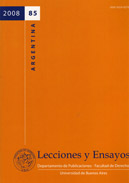El pensamiento de Gilles Deleuze y Michel Foucault en cuestión: las ideas en torno del poder; el sujeto y la verdad
Keywords:
portrait, rhizome, society of control, subject, archaeology, genealogy, bipowerAbstract
The works of Deleuze can be divided into three stages. During the first,
he studied such authors as Spinoza, Bergson, and Nietzsche. In the second stage,
shared with Félix Guattari, the work A Thousand Plateous gains importance, as well
as Rhizome, a book without subject and object. The third stage is featured by essays
on cinema and a powerful redefinition of the models of disciplinary societies
described by Michel Foucault.
The works of Foucault are also usually divided into three stages. The first is
dominated by the archaeological question about the emergence of determined
formulations in certain moments. In the second stage, Foucault takes possession of
Nietzschean genealogy and, during the third stage —ethical or governmental period—
the formation of subjectivities is analyzed in depth.
Downloads
Downloads
Published
How to Cite
Issue
Section
License

This work is licensed under a Creative Commons Attribution-NonCommercial 4.0 International License.











